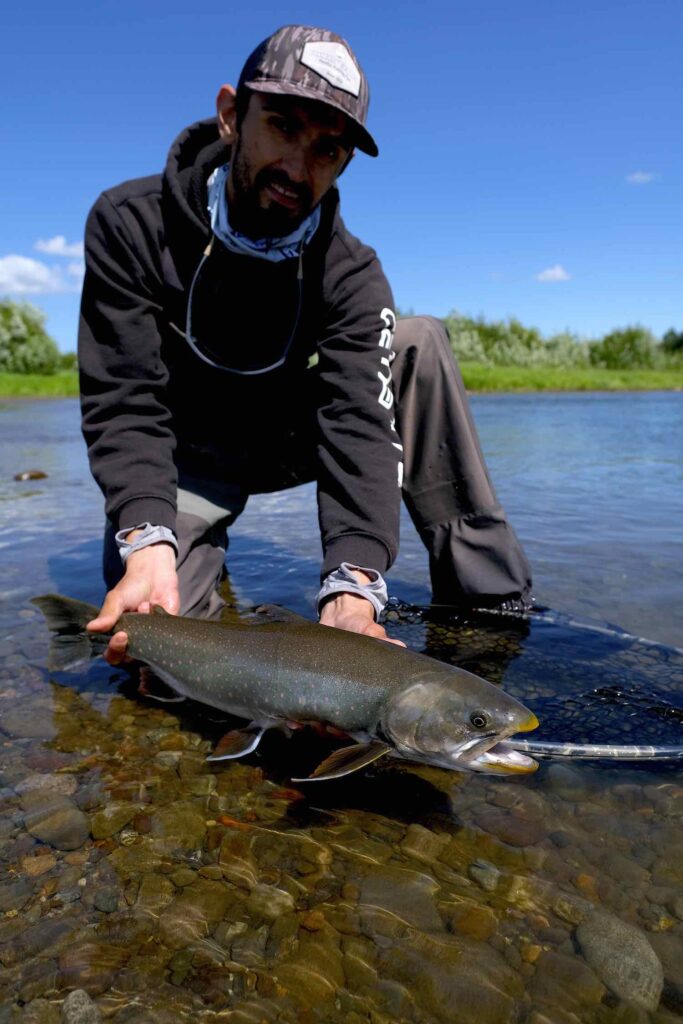 This is the day we have been waiting for, for more than a decade. Today, the Environmental Protection Agency announced that mine waste would harm the Bristol Bay watershed and effectively nixed its discharge into rivers, streams and wetlands of the North and South Fork of the Koktuli River and Upper Talarik Creek in the vicinity of the Pebble deposit.
This is the day we have been waiting for, for more than a decade. Today, the Environmental Protection Agency announced that mine waste would harm the Bristol Bay watershed and effectively nixed its discharge into rivers, streams and wetlands of the North and South Fork of the Koktuli River and Upper Talarik Creek in the vicinity of the Pebble deposit.
The decision effectively prevents development of the long-proposed Pebble gold and copper mine, which for decades has threatened the world’s most productive wild sockeye salmon runs, Alaska’s strongest Chinook salmon run, and the region’s famed sport and commercial fishing industries.
In a Trout Unlimited press release today Nelli Williams, Alaska director for TU said, “This is an incredible day for the Bristol Bay region. For more than a decade, the science has remained strong and public support has been unwavering for Clean Water Act protections. An Alaska-sized thank you to the Biden Administration and the EPA for listening to Alaskans, Tribes, anglers and hunters, and for doing the right thing for a world-class renewable resource and the people and jobs that depend on it. The work in Bristol Bay isn‘t done, but today is a milestone to be celebrated.”
Brian Kraft, president of Katmai Service Providers and operator of Grosvenor and Kulik lodges in the Bristol Bay watershed said, “Pebble Mine would destroy massive amounts of water and land in the heart of a wild, pristine and productive landscape. These safeguards are reserved for special places and Bristol Bay fits the bill perfectly. While there is more work to be done, with this news we can begin to work toward a bright future for Bristol Bay without the shadow of the Pebble mine constantly hanging over our heads. This sends yet another very strong message to the Pebble Partnership: your mine is not wanted here; we have better plans for Bristol Bay.”
Chris Wood, president and CEO of Trout Unlimited, said, “Clean Water Act 404(c) protections have always been a common-sense safeguard for Bristol Bay. Today, the people and businesses in Alaska and across the country who stood up for Bristol Bay should take a bow, because their efforts have protected the world’s most important wild salmon runs and the communities that depend on them. It’s long past time for Pebble to recognize that it will never have community or legal standing to develop this mine. Now, it’s time for us to further strengthen protections for the entire Bristol Bay watershed that match the scope of the threat to this special place.”
Today’s news culminates a 13-year plus process to protect Bristol Bay from the proposed Pebble mine. Section 404(c) of the Clean Water Act gives the EPA the authority to restrict, prohibit or deny mine waste from being discharged into waters of a region if it determines it will have unacceptable adverse impacts on the fishery or water resources. Alaskan Tribes, sportfishing groups and commercial fishermen first petitioned the EPA to act in 2010. After numerous rounds of scientific assessment and public comment, including support from hundreds of businesses and organizations, the proposed protections were released in 2014, but never finalized.
The Final Determination comes just six months after the Bristol Bay region set a new record with 79 million sockeye salmon returning to its rivers, streams and lakes. The 404(c) safeguards add another important layer of protection for the Bristol Bay watershed against the proposed Pebble mine. The Clean Water Act 404 permit for the proposed mine was denied by the Army Corps of Engineers in 2020. In December 2022, Pedro Bay Corporation finalized a deal to place 44,000 acres of land into conservation easements, complicating the primary proposed road corridor for Pebble mine.
